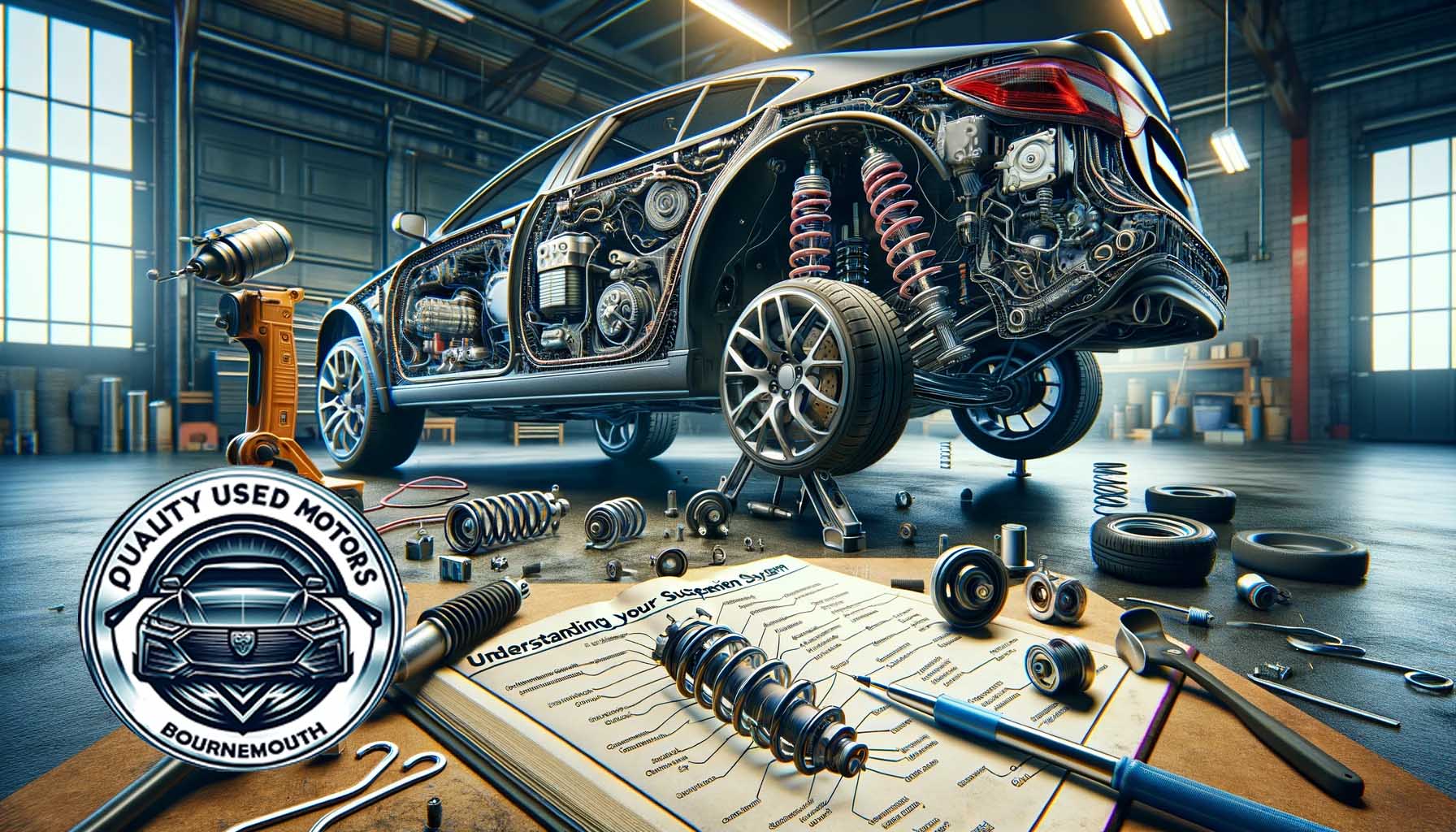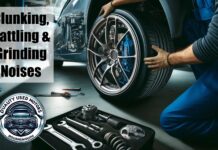A well-maintained suspension system is fundamental to the handling and comfort of your vehicle, absorbing bumps and shocks from the road to provide a smooth ride. For car enthusiasts and everyday drivers alike, understanding how to care for your suspension system is crucial. Here’s an expert guide on maintaining your vehicle’s suspension for optimal performance.
Understanding Your Suspension System
The suspension system is a critical component of your vehicle, designed to maximise the friction between the tyres and the road surface, provide steering stability, and ensure comfort by absorbing bumps and vibrations. It consists of several key components:
Shocks and Struts: These are vital for absorbing the shocks and vibrations caused by road surfaces, ensuring that the tyres maintain constant contact with the road.
Springs: Coil springs are the most common type of spring used in vehicle suspension systems. They compress and expand to absorb the motion of the wheels.
Control Arms: These allow the wheels to move up and down while keeping them in line with the body of the car.
Ball Joints: These serve as the pivot between the wheels and the suspension of the car.
Bushings: These small rubber or polyurethane components reduce friction and cushion the ride by absorbing some of the impact from road conditions.
Understanding these components and their functions can help you appreciate the complexity of your vehicle’s suspension system and the importance of maintaining it.
Regular Inspections Are Key
What to Look For
Visual Checks: Regularly inspecting your suspension system can help you catch issues before they become serious. Look for signs of rust or corrosion on metal parts, check for leaks in shocks or struts, and examine bushings for signs of wear or deterioration.
Listen for Noises: Unusual noises are often the first sign of a suspension problem. Clunking noises can indicate loose or worn components while squeaking may suggest that bushings or other rubber components are dry and need replacement.
Feel the Ride: Pay attention to how your vehicle handles. A decrease in ride quality or an increase in body roll (the vehicle leans excessively during turns) can indicate suspension problems. Also, if your vehicle continues to bounce after going over a bump or a pothole, it’s a sign that your suspension system needs attention.
Maintain and Replace Suspension Components
Shocks and Struts
Lifespan: Regular inspections can identify when shocks and struts are beginning to fail, but a good rule of thumb is to have them checked every 50,000 miles. Remember, worn shocks and struts can extend braking distance, reduce tyre life, and affect the handling of your vehicle, compromising safety.
Springs
Inspection and Replacement: Look for signs of sagging or uneven ride height, which can indicate weak springs. Weak springs affect the handling of the vehicle and can also cause uneven tyre wear.
Control Arms and Ball Joints
Regular Checks: These components are crucial for the safe steering and handling of your vehicle. Worn ball joints can be dangerous, as they are a critical component of the steering linkage. Regular inspections help ensure that wear and tear do not lead to unexpected failures.
Tire Alignment and Balance
Proper tyre alignment and balance are crucial for the longevity and efficiency of your vehicle’s suspension system. Misalignment can lead to rapid and uneven tyre wear, negatively affecting handling and fuel efficiency. It also puts extra strain on suspension components, potentially leading to premature wear and failure.
Alignment Checks: It’s recommended to have your vehicle’s alignment checked at least once a year or following an event that could disrupt the alignment, such as hitting a significant pothole or curb. Proper alignment ensures that your tyres meet the road at the correct angle, your wheels are pointing straight, and your tyres are centred in the wheel wells. This reduces tyre wear and improves handling and fuel efficiency.
Balance Your Wheels: Wheel balancing ensures that your tyres and wheels spin without causing vibrations. Unbalanced tyres can lead to uneven wear, vibration, and potentially premature wear of the suspension system. Balancing should be performed whenever you get a new set of tyres, and whenever you notice a vibration in the steering wheel, seat, or floorboard at certain speeds.
Avoid Overloading
Your vehicle’s suspension system is designed to carry a certain maximum load. Exceeding this load can put excessive strain on suspension components, leading to accelerated wear and even failure.
Understand Load Capacity: The manufacturer’s recommended load capacity includes the weight of passengers, cargo, and even the trailer tongue weight if you’re towing. Consistently exceeding this weight can result in sagging springs, worn shocks and struts, and stressed bearings and bushings.
Road Awareness
The way you interact with the road can have a significant impact on the health of your suspension system.
Navigating Roads: Whenever possible, avoid potholes, rough roads, and obstacles that can jolt the suspension system. Such impacts can cause immediate damage to suspension components, including bent parts and leaks in shocks or struts.
Defensive Driving: Anticipate and react to road conditions. Slowing down before bumps or obstacles can greatly reduce the stress on your suspension system.
Quality Used Motors Bournemouth: Committed to Suspension Health
At Quality Used Motors Bournemouth, we prioritise the health of the suspension system in all our used cars for sale. We understand that a well-maintained suspension is key to the safety, comfort, and performance of any vehicle.
Thorough Inspections: Each vehicle undergoes a comprehensive inspection, with a particular focus on the suspension system. We check for wear and damage to shocks, struts, springs, and other suspension components to ensure they meet our high standards.
Customer Confidence: Our commitment to suspension health means our customers can be confident in the performance and reliability of their vehicles. We strive to offer cars that not only meet but exceed expectations, ensuring a smooth, comfortable, and safe driving experience.
By following these guidelines and choosing a provider like Quality Used Motors Bournemouth, which places a high emphasis on vehicle maintenance and suspension health, drivers can enjoy a safer, more comfortable ride and prolong the life of their vehicle.








